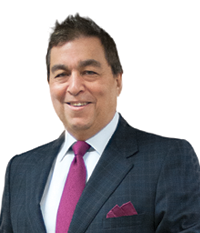
Illustration by Janet Atkinson
Don’t Run Out Of Money Before You Run Out Of Life
A critical component of any solid financial plan is preparing for the future. This is why one of the first things I want to understand, when I speak with clients about their retirement plans, is exactly what their vision is for their golden years. I start with 3 basic questions:
- When do you want to retire?
- Where do you want to retire?
- What do you plan to do when you retire?
The answers to these preliminary questions set the parameters for the rest of the plan. If the big day is around the corner, then planning options may be limited. If, on the other hand, there is time before the anticipated retirement date, there is more opportunity to develop a retirement plan that meets a client’s needs.
It goes almost without saying; the sooner one begins planning, the better. Your Retirement Income Plan must satisfy 3 requirements:
- Provide steady cash flow for the duration of one’s life
- Keep pace with inflation
- Provide survivor benefits
There are many factors that come into play when budgeting for the future. How much will you need annually to pay all of your expenses? For example, does your plan entail staying in your current home, downsizing to a condo, moving to Florida or maybe even Australia? How will inflation affect these expenses?
Once you have calculated your anticipated annual expenses in retirement, we advise clients to project those expenses into the future, inflating the various categories according to their own inflation rate. This is where an advisor can be helpful, or, for the do-it-yourselfers, there are many tools available online to work up these projections.
Either way, one of the most important and overlooked element of a retirement plan is failing to plan for a long enough life. Although the good news is that people are living longer, you want to make sure that you don’t run out of money before you run out of life. This fact can have a great impact on your investment strategy.
Many pre and post retirees plan to rely primarily on fixed income investments like bonds and CDs for their monthly cash flow. In my opinion, depending on how much money you have, this is where the costliest mistakes are made. We believe for the most part, there is very little opportunity for bonds and CDs to give you a “pay raise.”
Generally, one has to be an owner of something in order for cash flow to increase over time and keep pace with inflation. This may mean owning stocks or perhaps real estate. Of course, these types of investments have risks. Nevertheless, one area that may be worthy of consideration is high dividend stock funds.
It is possible to put together a large basket of high dividend stocks that can pay a dividend of 3% to 4% to 5% per year. Investing in a portfolio that consists of thousands of companies from all over the globe offers broad diversification* and therefore some protection in case any individual companies run into trouble. In today’s world of interest rates, high dividend stocks can not only provide a comparable cash flow to fixed income investments, but as important, stock prices can rise and dividends can increase over time.
In sum, a Retirement Income Portfolio that consists of high quality bonds and high dividend stocks should be seriously considered when putting together your retirement plan.
Coming up in my next installment: Everything Is Fine As Long As No One Gets Sick
Learn about the Wealth Preservation Solutions Retirement Planning Process.
Securities and Investment Advisory Services offered through NFP Advisor Services, LLC (NFPAS), member FINRA/SIPC. Wealth Preservations Solutions, LLC is a member of PartnersFinancial a platform of NFP Insurance Services, Inc (NFPISI), which is an affiliate of NFPAS. Wealth Preservation Solutions, LLC is not affiliated with NFPAS and NFPISI.
This article is for informational purposes only and is not intended as an offer or solicitation for the sale of any financial product or service or as a determination that any investment strategy is suitable for a specific investor. Investors should seek financial advice regarding the suitability of any investment strategy based on their objectives, financial situations, and individual needs. This article is not designed or intended to provide financial, tax, legal, accounting, or other professional advice since such advice always requires consideration of individual circumstances.
*Using diversification as part of your investment strategy neither assures nor guarantees better performance and cannot protect against loss of principal due to changing market conditions.












